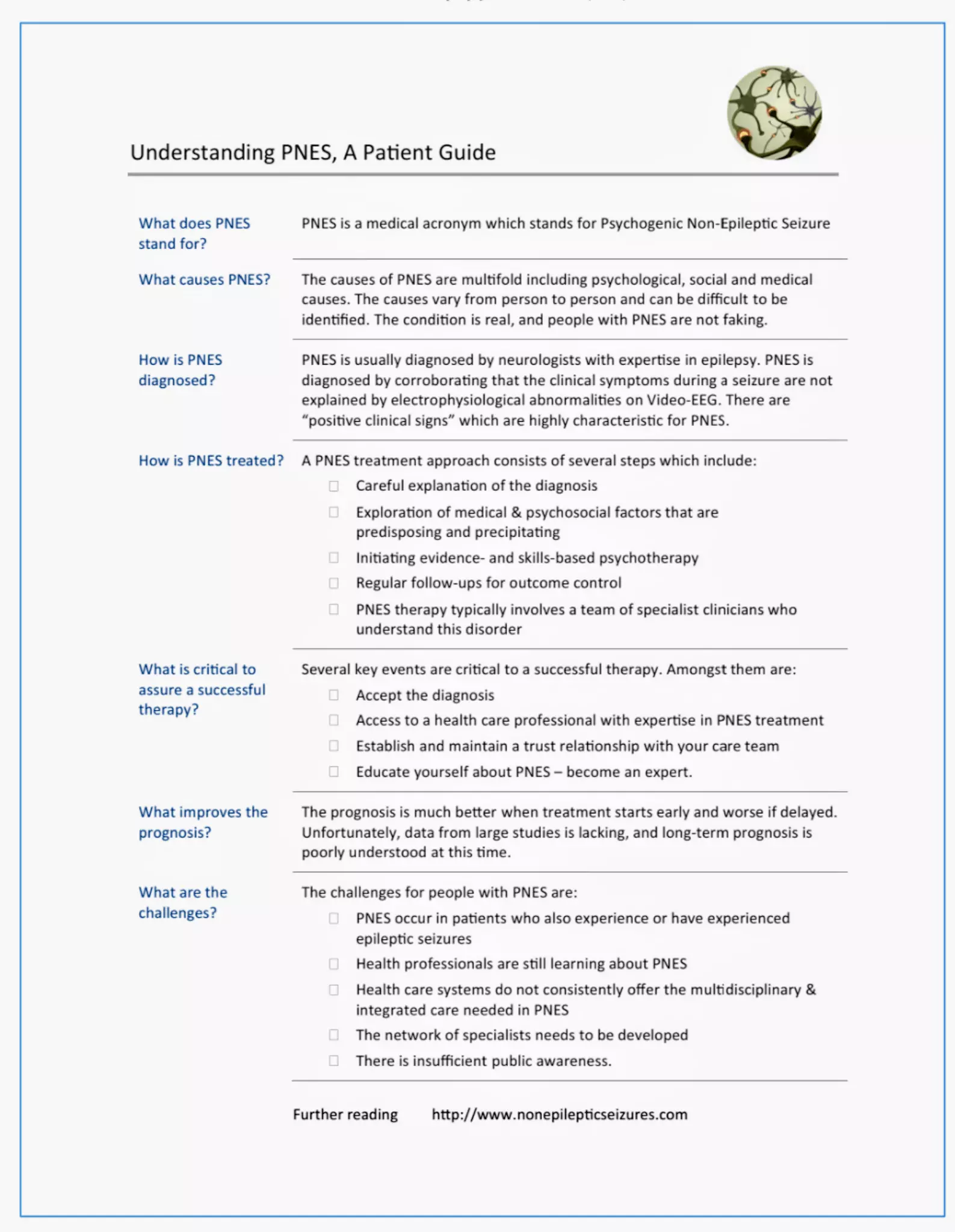
What are Non-Epileptic Seizures / Non-Epileptic Events?
Table of Contents
ToggleNon-Epileptic Events are seizure-like events that are not caused by Epilepsy.
Epileptic seizures are electrical storms in the brain. In contrast, there is no electrical storm in the brain during a Non-Epileptic Event.
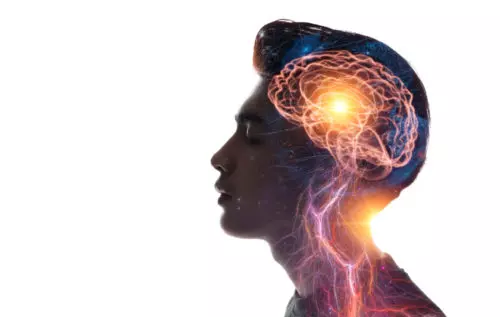
What causes Non-Epileptic Events?
There are many causes of Non-Epileptic Seizures. Here is a list of the most important causes:
- Sleep disorders such as REM behavior disorder, Nightmares & Narcolepsy.
- Cardiac rhythm problems which cause sudden unconsciousness
- Seizures caused by stress. These are also called Psychogenic seizures or Psychogenic Non-Epileptic Seizures (PNES)
The attacks caused by these disorders can look like Epileptic Seizures. This may lead to a mis-diagnosis of Epilepsy.
Episodes of unconciousness produced by cardiac arryhthmia may look like seizures.
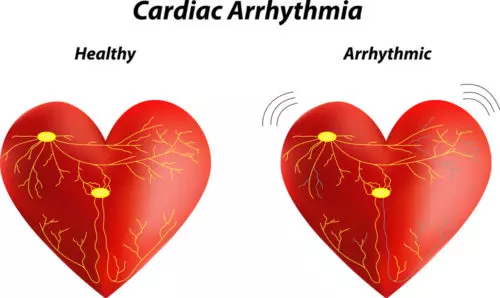
In many cases Epilepsy Monitoring Unit (EMU) evaluation may be needed (see below). EMU evaluation is also called long term video-EEG (ltm-vEEG) evaluation.
What are Psychogenic Non-Epileptic Seizures (PNES)?
PNES are a special type of Non-Epileptic Event. They are produced by psychological stress or worry.
These are real attacks that can be very frightening.

Earlier, these used to be called “Pseudo-Seizures”, but this term is no longer used. Some doctors use the term “Non-Epileptic Seizures (NES)” instead of “Psychogenic Non-Epileptic Seizures (PNES)”.
- PNES is used more commonly. In practice, I myself prefer to use the term NES instead of PNES.
It is possible to identify the exact mental stress causing this problem. Sometimes, the source of stress may be hidden deep within our mind.
Can you explain the rest of the words in “PNES”?
Sure.
- Psychogenic = From the Mind (Epileptic seizures arise from the brain)
- Non-Epileptic = Not caused due to Epilepsy
- Seizures = These events look like seizures.
So, this is a disease with repeated “Seizure-like-attacks arising from the Mind”.
Ah okay! So this is not a “real” disease like Epilepsy?
Nothing could be further from the truth!
PNES is a very real problem for those who suffer from it.

While we know a bit about the brain, we know very little about the Mind. We don’t completely understand how the mind affects the body, but we know that it does.
People who have a lot of stress, for example, are very likely to have higher blood pressures and early heart attacks. Would you ever walk up to a person who was having a heart attack due to high stress, and tell him he/she didn’t have a real problem? You wouldn’t – It would be quite unintelligent to do so.
PNES is a similarly serious problem, except we don’t understand it as well as we know a heart-attack. This lack of understanding reflects a shortcoming of medical knowledge, rather than of the patient.

What causes Psychogenic Non-Epileptic Seizures (PNES)?
As noted earlier, Non-Epileptic Seizures (NES) are caused by psychological stress
These are real events which need to be understood properly.
Some people’s minds are very sensitive to stress. Small incidents, such as arguments, may overload their brain with stress.
Every time their mind becomes overloaded with stress, it stops functioning normally. Their mind may behave in abnormal ways – for example, they may have a sudden explosion of panic.
That is when you get a Non-Epileptic Seizure.
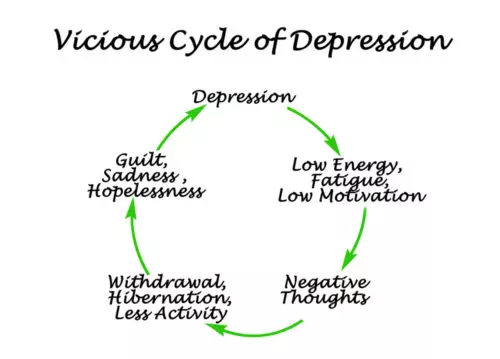
Once Non-Epileptic seizures begin they may cause even more stress/worry. This increased stress can cause more Non-Epileptic Seizures.
This is called a vicious cycle. Increased stress causes more Non-Epileptic Seizures, which in turn causes more stress.
This vicious cycle needs to be broken.
Can PNES & Epilepsy occur in the same person?
YES!
This is a crucial point to remember – The same person may have both Epileptic & Non-Epileptic attacks. Some researchers have estimated that up to 25-50% of patients with Epilepsy also have PNES attacks.
Some patients may have both Epileptic seizures and Non-Epileptic attacks.
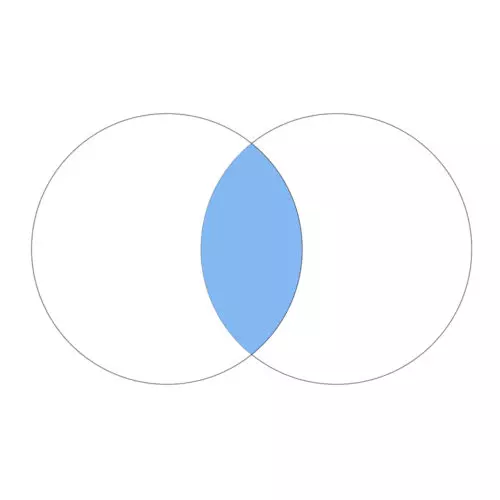
Therefore, even if you have PNES, it is absolutely essential to make sure that you don’t have Epilepsy as well.
Many researchers have highlighted this point. In 2013, the International League Against Epilepsy (ILAE) proposed a set of minimum requirements for a diagnosis of PNES: [ILAE diagnosis of PNES]
Thus, a person who has both Epileptic Seizures & PNES may be mistakenly labelled as having “only PNES” instead. This is a mistake that should be avoided at all costs.
Evaluation of Psychogenic Non-Epileptic Seizures (PNES)
Unfortunately, we have no instrument that can measure psychological stress. We therefore need to rule out other problems, before concluding that a person has PNES only.
To complicate things, many people with Epileptic seizures have tremendous mental stress. And some patients have both Epileptic and Psychogenic Non-Epileptic seizures.
So, how do we diagnose Psychogenic Non-Epileptic Seizures (PNES)?
Sometimes, doctors can make educated guesses. The movements during stress-seizures (Non-Epileptic) are slightly different, than those due to electrical storms (Epileptic). PNES can be longer than Epileptic seizures. The patient may be able to respond partially during PNES. And so on…
Most patients who have seizures also get an MRI and a routine (1-2 hour long) EEG. The MRI and EEG may be if the patient has Epileptic seizures, or both kind of seizures. They are normal if a patient has only PNES.
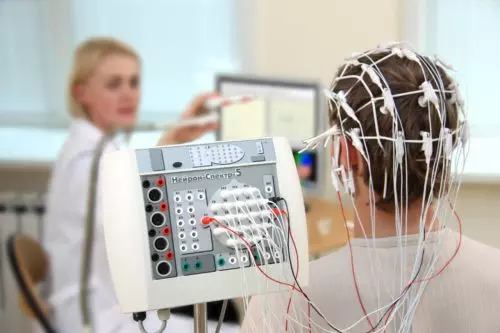
These criteria don’t always work.
If after all these things, the cause of seizures is still not clear, the doctor may advise EMU evaluation.
EMU (Epilepsy Monitoring Unit) evaluation:
EMU evaluation is also called long term Video-EEG (ltm-vEEG) evaluation.
The patient is admitted to the hospital in a comfortable room. He is attached to the EEG machine. In addition, other machines measure his heart rate, blood oxygen level, and ECG at all times.
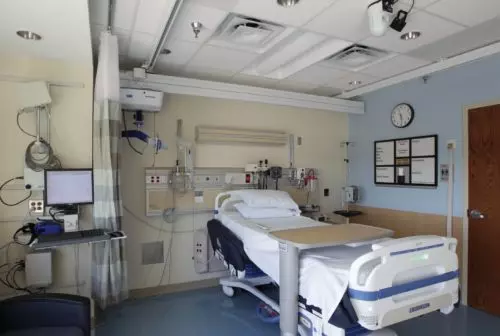
The goal is to “capture” a seizure.
- If during the seizure, there is an electrical storm in the brain – the person has Epilepsy.
- If there is no electrical storm – the patient has Non-Epileptic Events.
This determination is quite definite. Therefore, EMU evaluation is called the “gold standard” for evaluation of psychogenic Non-Epileptic seizures (PNES).
Treatment of Psychogenic Non-Epileptic Seizures (PNES)
Traditional medications given for Epileptic Seizures (Anti-Epileptics) are not effective against PNES.
This is expected. These medications prevent Electrical storms in the brain. PNES is not caused by Electrical storms. PNES are caused by mental stress.
Treatment of PNES is possible. Improvement is possible. Many people stop having PNES entirely after proper treatment.
Treatment of PNES is a multi-step process. It is best coordinated by a mental health professional such as a psychiatrist or counsellor. This process requires both the doctor and patient to work hard and be patient.
Steps in treatment of Psychogenic Non-Epileptic Seizures (PNES)
Step 1:
The first step is to find the exact reason for mental stress.
Sometimes, this reason may be hidden deep within our mind.
Our mind unconsciously suppresses unpleasant memories. These memories may be bad events from our childhood, or even recent events such as loss of a job, or the death of a loved one.

Step 2:
The second step is to find ways to reduce this stress. These methods may include:
- Confronting the source of stress directly (e.g. prolonged exposure therapy)
- Family therapy / Couples counselling
- Learning alternative methods of thinking about the source of stress (Cognitive Behavioral Therapy – CBT)

Step 3:
Sometimes, the source of stress cannot be found.
In these cases, general measures to reduce the stress are useful. They may include:
- Progressive relaxation techniques
- Breathing exercises
- Meditation
- Group therapy

Prognosis of Psychogenic Non-Epileptic seizures (PNES) – Do they stop?
Step 1:
Yes.
PNES can stop after treatment.
PNES usually do not case bodily injury. However, they are a real condition. They are produced by severe mental stress.
PNES frequency deceases after the above-mentioned measures. Many times, PNES stops completely.
There are 2 things to remember:
- Better results are obtained by early treatment. If there is a delay of more than 12 months in starting proper treatment, improvement can be delayed. Unfortunately, even in developed countries, this delay can be up to 5 years [Kanemoto 2017].
Often this delay is caused by delayed referral for EMU (Epilepsy Monitoring Unit) evaluation [Kerr 2021]. If your seizures are uncontrolled, you should request your doctor to refer you to a EMU. - Treatment of PNES requires you to have an accepting, open attitude. For this reason perhaps, treatment is even more effective in children. [Chinta 2008].

Psychogenic Non-Epileptic Seizures (PNES) Summary
A recently published paper [Pohlmann-Eden 2019] has a nice summary figure.
Click on the image below to read the larger version.
| Caution: This information is not a substitute for professional care. Do not change your medications/treatment without your doctor’s permission. |

